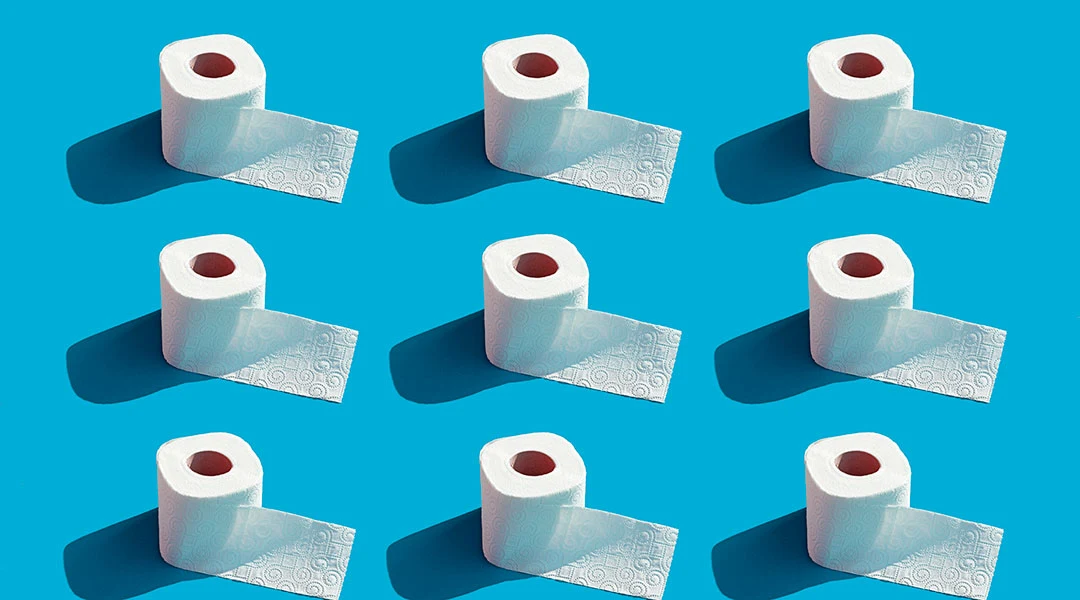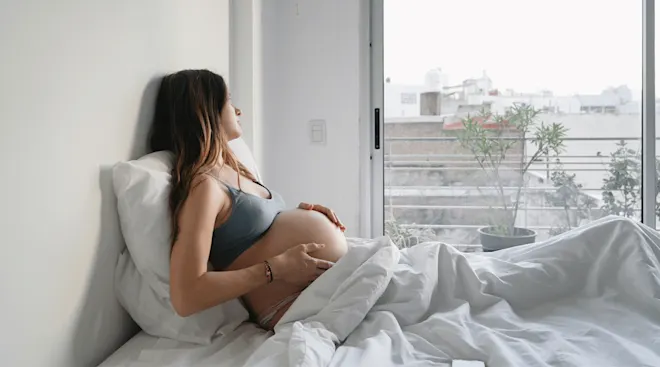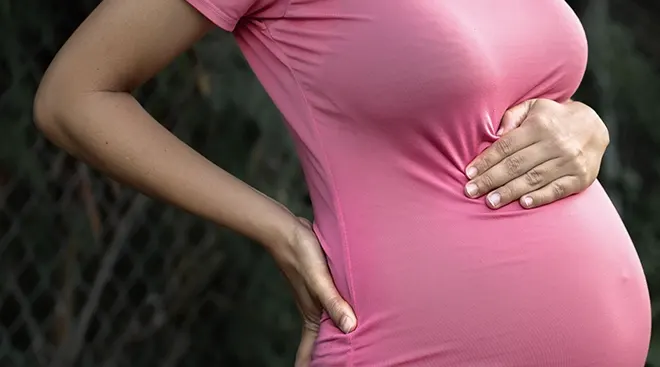Is It Normal to Have Dark Urine During Pregnancy?
Before you got pregnant, you probably didn’t pay too much attention to the contents in your toilet bowl—but now that you’re expecting, you might very well find that the consistency and color of things can change, and it’s understandable to question what’s normal. So when you look down after peeing and see darker or murkier urine, you’ll probably wonder whether that’s a typical pregnancy urine color. Here’s the thing: It’s most likely not. Darker urine during pregnancy is usually related to being dehydrated, although it can also stem from certain medications and medical conditions, and even something you ate. Keep reading to learn what can cause dark urine during pregnancy, how to clear it up and when to see a doctor.
If your pregnancy urine color is dark these days, you’re most likely just dehydrated. “The color of urine varies among individuals significantly but is highly regulated by the amount of water you drink,” says Temeka Zore, MD, a California-based ob-gyn and reproductive endocrinologist with Spring Fertility in San Francisco. “Urine should usually fall into the yellow spectrum and may vary in terms of ‘how bright’ or ‘yellow’ it appears based on hydration status. Darker yellow urine is common when you’re dehydrated because the urine is more concentrated.” For example, your first pee of the morning tends to be more concentrated and therefore looks darker than it would later on in the day. When you don’t drink enough water, she explains, your body retains more water and excretes less of it into urine, causing your pee to appear darker.
Staying hydrated is important for everyone, but moms-to-be need to drink even more water than they did pre-pregnancy. That’s because your body needs water to form amniotic fluid, produce extra blood volume, build new tissue, carry nutrients, help indigestion and flush out your wastes and toxins. “Even if you think you’re drinking a lot, you may not be drinking enough,” says Karen Deighan, MD, FACOG, department chairperson of obstetrics and gynecology at Gottlieb Memorial Hospital of Loyola University Health System. Aim to drink at least eight to 10 glasses of water each day.
Making sure to drink enough fluids is particularly important for pregnant women suffering from hyperemesis gravidarum, which is characterized by extreme nausea and vomiting and can make you severely dehydrated. About 1 in every 200 pregnant women experience this condition, and it usually occurs in the first trimester.
While dehydration is most likely the cause of dark urine during pregnancy, it can also be caused by certain medications, fruits and vegetables (such as beets or rhubarb) and medical conditions, such as a urinary tract infection, cholestasis of pregnancy, kidney stones, kidney disease and liver disease, among others.
Your pregnancy urine color can turn dark at any point, but you may see dark urine more often in your third trimester, Zore says, due to the fact that as baby grows and presses against your bladder, you tend to have to urinate more. “If you aren’t staying hydrated and you have more frequent bathroom trips, you may notice darker urine more often,” she explains.
Hydration is key! As hard as it may be, make sure you’re drinking at least eight to 10 glasses of water daily. To make this task a little easier, Zore suggests carrying a water bottle around so you always have water handy. If you’re bored by the taste, try adding fresh fruit to give it a slight change in flavor. There are other healthy alternatives to water as well, such as sparkling water, coconut water, milk and pregnancy-friendly herbal tea.
While dark urine during pregnancy is usually nothing to worry about, it’s still something you should mention at your next doctor’s visit. Until then, try to drink more water to see if that helps bring your pregnancy urine color back to that sunny yellow. If it doesn’t—or if you see any blood in your urine—you’ll definitely want to let your doctor know, Zore says, and they’ll be able to do additional work-ups to figure out what’s going on.
“Other symptoms that may be suggestive of a more serious issue include severe itching of the palms and soles of your feet in the second or third trimester, a history of kidney or liver disease or burning/pain with urination,” Zore says. If you’re experiencing any burning or pain when you pee, it could be a sign of a urinary tract infection (UTI), and if left untreated, it can lead to a kidney infection, which is very serious in pregnancy. “Urinary tract infections are common in pregnant women due to the changing anatomy in pregnancy,” Zore says, so it’s important to get treated right away if you suspect you may have one.
About the Experts:
Temeka Zore, MD, is an ob-gyn, and reproductive endocrinologist practicing at Spring Fertility in San Francisco. She received her medical degree from Indiana University School of Medicine.
Karen Deighan, MD, FACOG, is an ob-gyn and the department chairperson of obstetrics and gynecology at Gottlieb Memorial Hospital of Loyola University Health System. She received her medical degree from the University of Illinois at Chicago, Illinois.
Please note: The Bump and the materials and information it contains are not intended to, and do not constitute, medical or other health advice or diagnosis and should not be used as such. You should always consult with a qualified physician or health professional about your specific circumstances.
Plus, more from The Bump:
Navigate forward to interact with the calendar and select a date. Press the question mark key to get the keyboard shortcuts for changing dates.





















































